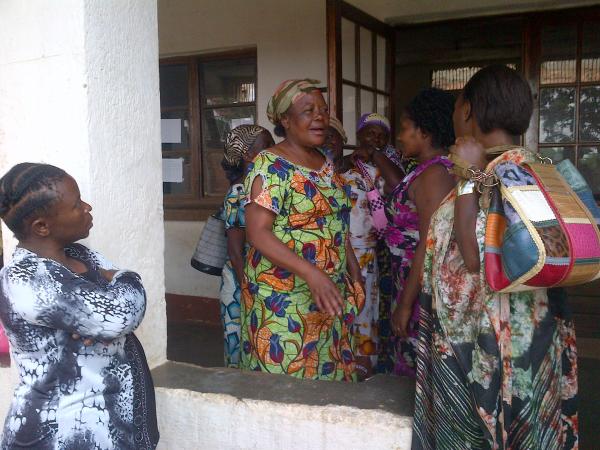Cry the beloved Congo

Mpho Mabhena writes about her distressing experience of the plight of women in the Congo.
My research mission on masculinity in the Democratic Republic of Congo (DRC) has made me realise how privileged I am to be born and bred in the Southern African country of Zimbabwe. Despite the challenges I face as a young woman working in my neighboring country, South Africa, I cannot compare them to those of the women and girls I interacted with during my stay in the DRC.
In a country that is not only torn apart by war, women and girls, as well as old women, have also become victims of rape, and at times gang rape.
Usually a baby is a sign of a bond that two people have shared together, a bond of love. In most households, a baby brings life, joy and happiness. Some couples struggle to have children; they long to feel the movement of a baby in its mother’s womb.
But now, imagine, at 27 having seven children to support, with an eighth on its way. And imagine if these eight children, which society expects one to love and care for, are all the result of rape. Imagine such a constant reminder of the day one was sexually violated. Imagine not knowing which was the father because it was a gang-rape. Such is the real-life experience of young women my age.
How do these girls and women feel having to nurture babies born out of rape? I try to put myself in their shoes and wonder if I would be strong enough to love or care for something that would remind me that I was raped.
Many of us who have never experienced what they have gone through will never understand how they feel. All we can offer are words of soldiering on.
During a parallel “Healing of Memories” session of survivors of sexual abuse conducted by the organization Tearfund, women and girls in Bunia and Bukavu who attended our surveys and focus group discussions had their babies wrapped in chitenge (a local fabric that women tie around their waists), with a rope in place of a safety pin to secure the makeshift “nappy”.
At one session, four babies between three and eight months’ old, cried while their mothers tried to follow the sessions. Normally, a mother would cuddle her baby or try and find out what is bothering the baby. It could be the need for a change of nappy (in this case a chitenge); it could be hunger.
I saw a young girl, one of a group of survivors in Bunia, young enough to be at school, but with a bulging stomach. She had no idea what was happening to her body. She asked what was this “thing” moving inside her. She has been raped and no one had informed her that she was pregnant.
I fear for the babies born out of rape. They are stigmatised and rejected, not only by the community and next of kin, but by their mothers as well. If nothing is done, I foresee a new generation of babies born out of rape, full of anger, needing love and attention.
In contrast, in South Africa, where rape and sexual abuse are also prevalent, there are initiatives like the Thuthuzela Care Centres and Victim Empowerment Programme within the South African Police Service (SAPS). Counseling, support structures, healthcare as well as court preparation sessions are available.
Nothing like this is seen in the DRC. There is no facility that can offer the “morning after pill” to prevent chances of falling pregnant nor post-exposure prophylaxis to prevent contracting HIV & AIDS.
Yet, there is maybe some light at the end of this tunnel. The Anglican Church of Congo has launched a campaign called “We Will Speak Out” in Kinshasa spearheaded by the Archbishop of the Anglican Church of Congo, the Most Reverend Henri Isingoma, together with other church leaders of various denominations as well as non- governmental organizations and faith-based representatives.
Mpho Mabhena works for Sonke Gender Justice.
Support independent journalism
Donate using Payfast

Don't miss out on the latest news
We respect your privacy, and promise we won't spam you.
Next: Rumours: an extract from Mongane Wally Serote’s latest novel
Previous: Connecting youth through music

This article is licensed under a Creative Commons Attribution-NoDerivatives 4.0 International License.
